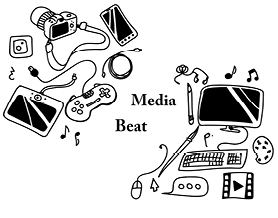
*Note: This is a spoiler-free article.*
Whether you watch it or not, it’s hard to deny the success of HBO’s “Game of Thrones.” It has become so successful that googling the phrase “the next Game of Thrones” will bring numerous results for which big-budget TV show will be the “Game of Thrones” successor, since, of course, “Game of Thrones” is coming to a close with the eighth season currently airing.
While I could easily use this article as a platform to discuss how I see the show ending (it’s going to be a bitter one), instead I want to focus more on what the ending of this series means for its source material and the study of adaptation.
For those unfamiliar with the series, “Game of Thrones” is based on the “A Song of Ice and Fire” series by novelist and screenwriter George R. R. Martin. The first book, “A Game of Thrones” was published in 1996, with its sequel, “A Clash of Kings” releasing two years later, followed by “A Storm of Swords” in 2000. Pay attention to the date of release, since the consistency found in Martin’s release schedule ends with the fourth book in the series.
“I want to focus more on what the ending of “Game of Thrones” represents for its source material and the study of adaptation.” – Anders Mattson ’19
According to Martin, the fourth book got so massive that his publishers forced him to split it in two, making “A Feast For Crows,” released in 2005, and “A Dance with Dragons” released in 2011. If it is not obvious already, Martin has slowed down.
While I could dwell on the many theories or reasons that Martin himself has stated for this slowdown, I don’t think it’s that important. In my view, an artist deserves all the time they need to create their masterpiece, and this series has clearly been that for Martin. With all of this in mind, Martin is at work on the sixth novel in the series, “The Winds of Winter,” with at least one more to be released after that.
This is where the television show comes into play. On May 19, 2019, the final episode of the show will air. Unlike other adaptations of this kind, the secondary work will end before the source material does. Imagine if the final “Harry Potter” movie released before the final book, think about how the lense of comparison would shift. Instead of comparing the book to the movie, we would be doing the opposite.
Of course, one could argue that the show ending will be irrelevant to the book ending since the books are nowhere near the finish line like the television show. Martin has made it clear that this is not the case.
Though he thinks the ending for some secondary characters might be different, he noted in a “60 Minutes” interview that during meetings with the showrunners he provided the major beats he sees for the series and its ending.
“I don’t think Dan and Dave’s ending is going to be that different from my ending because of the conversations we did have,” Martin said.
For fans of literature and entertainment in general, this is a monumental moment for the nature of adaptation. Never before, in my view, has an adaptation of such high caliber finished telling the story of the source material.
Some adaptions, like the Japanese film “Akira” released before it’s source material was finished, but that was a very different ending and the same creator worked on both. The very nature of comparison between adaptation and original work has shifted since the book conclusion will now be compared to the show ending. On this subject, Martin said in the same “60 Minutes” interview that he imagines great debate will take place amongst fans when his books end but don’t think that is a bad thing.
“The worse thing for any work of art is to be ignored,” Martin said.
I agree with this, and the longevity of this series going beyond the television show and the novels lifetime will be the immense study of adaptation that will take place at the conclusion.
Though the ending beats for some secondary characters, some that have never appeared in the show, will probably be different, this sort of ending release is unheard of and I think it will lead to a great debate on the nature of adaptation.
Though I feel it is tragic for Martin to not finish his series before the adaptation, I believe this series will live on due to the nature of its unconventional release schedule and the fame of it’s adaptation.

